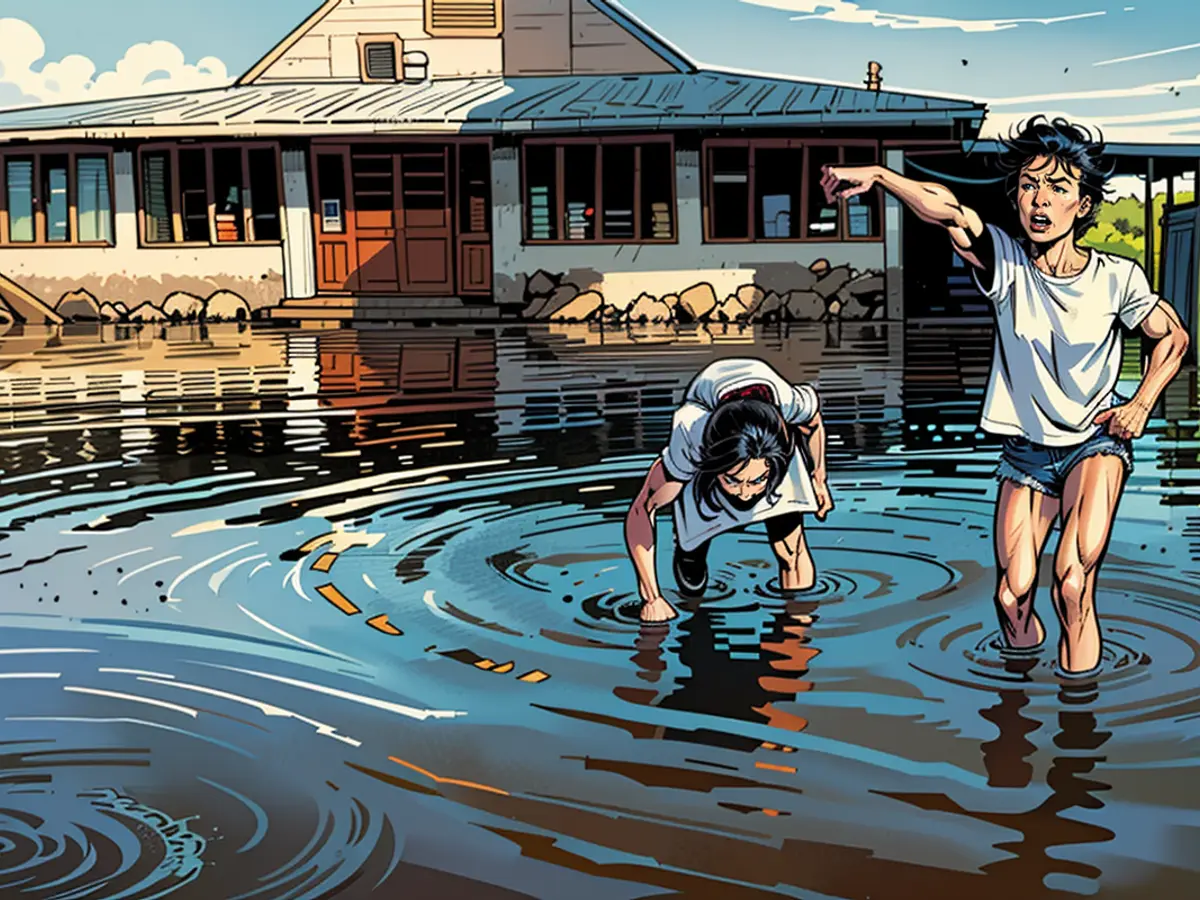- Guterres issues an urgent appeal from Tonga
Due to the escalating sea levels, UN Secretary-General António Guterres has demanded immediate climate action during his visit to the Pacific island nation of Tonga. "This is a bonkers situation," he stated at a Pacific Islands Forum leadership gathering, "the expanding sea levels is a catastrophe entirely brought about by humans, one that's quickly approaching unthinkable dimensions, with no lifeboat to save us."
Three factors driven by human-induced climate change pose a significant threat to Pacific islanders: aside from rising sea levels, these include the heating of the water and the acidification of the ocean. They are experiencing more severe climate impacts than many other parts of the world, despite contributing negligibly to greenhouse gas emissions, as per the World Meteorological Organization (WMO).
Sea levels have risen by 10 to 15 centimeters in certain regions since 1993, nearly double the global average, according to the WMO's 2023 report on the western Pacific region. This region encompasses parts of Southeast Asia, Australia, and New Zealand, as well as Pacific island nations like Fiji, Vanuatu, and Tonga. Climate change is altering ocean currents, which also impacts the regional distribution of water - hence the uneven rise in sea levels.
Rising sea levels are causing islands to lose their coastal strips, and stronger and more frequent storms are inundating agricultural land and contaminating freshwater reserves with saltwater. Some island states fear they may become uninhabitable. The island nation of Kiribati, for instance, has already purchased land on the Fiji Islands to relocate its residents.
Sea temperatures are rising
The sea surface temperature has risen by over 0.4 degrees per decade between 1981 and 2023, three times the global average, in the north-east of New Zealand and south of Australia, as per the WMO. Marine heatwaves have since occurred twice as frequently as the long-term average, are more intense, and last longer. This endangers marine life and coral reefs, and encourages the growth of harmful algae.
Moreover, the pH value in the oceans is decreasing in several places - meaning they are becoming more acidic as they absorb more CO2. This can destroy coral reefs that protect coasts from erosion, and also impact fish populations.
"Paradise Under Threat"
"This is a global catastrophe endangering a paradise," said Guterres. "The ocean is rising, and the cause is clear: greenhouse gases, primarily from burning fossil fuels, are heating up the planet." In the past five decades, the world's oceans have absorbed more than 90 percent of global warming, leading to massive coral bleaching, among other things.
Climate change affects all nations
"We must act and respond to the SOS before it's too late," Guterres emphasized. He urged world governments to phase out the fossil fuel era and substantially increase investments in climate adaptation. "The impacts of global warming will affect all nations, not just Pacific states," he cautioned.
Representatives from 18 island nations gather annually for a multi-day meeting of the Pacific Islands Forum. This includes countries such as Tonga, Vanuatu, Fiji, and New Caledonia, as well as Australia and New Zealand.
The Community of Pacific island nations, including Tonga, is deeply affected by the rising sea levels and ocean acidification, which threaten their coastal strips and agricultural land. António Guterres, the UN Secretary-General, addressing the Community, emphasized that climate change is a global catastrophe, primarily driven by greenhouse gas emissions from burning fossil fuels.







